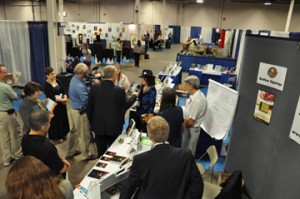CWG Member News March 2022: Opportunities Galore!
We’ve been gearing up to revive some activities that have fallen by the wayside, asking you to prayerfully consider where you can pitch in. This month, we have some concrete opportunities. Please read on for details.
I pray that despite the many distractions and crises in our world, these grace-filled weeks of Lent bring you closer to our suffering Savior.
Carolyn Astfalk
President
[Editor’s note: email addresses and links to members-only forms are included in the newsletter sent to all CWG members. If you did not receive your newsletter, which was sent on March 10, first check your spam folder before emailing [email protected].]
By Popular Request
There was great interest at the online conference in a listing of members and their websites, podcasts, and social media. This will help our members connect, share ideas, and promote each other’s work. We’ll provide access to a spreadsheet with this information in our next newsletter. Please fill in the members-only Google form linked in the March newsletter if you’d like to participate.
Showcase Your Writing
Write for the CWG blog! We’d love to revive the blog as a showcase of member writing. We have a survey for members who would like to help with this project as a monthly writer and/or editor. We’re also seeking blog committee members. Please fill in the members-only form linked in the March newsletter, and our CWG blog project manager, Katelin Cummins, will be in touch.
Social Media Help Wanted
We could really use a volunteer or two to assist with social meda. Currently we have a presence on Facebook, Twitter, Instagram, and MeWe. We also have some software to help with certain social media scheduling. We’d like to post about twice per week, plus engage with our followers. Interested? Contact information is available in the March newsletter.

Testimonials Wanted!
Would you like to share a brief (max 25 words) testimonial like the one above about the Catholic Writers Guild for our social media promotion? This could be a general testimonial or something about our conferences, awards, Seal of Approval, critique groups, or other activities. Contact information is available in the March newsletter.
CWCO Wrap-up
Our pitch sessions were a great success! To clarify last month’s update: Twenty-seven pitches resulted in manuscript requests. An additional eleven pitches sparked some interest that may result in a later request. Thanks to all of those who coordinated and participated! If you attended the conference, you should have received email links to the recorded sessions. If you did not, please let Carolyn know.
Ohio Writers: Let’s Start a New Chapter
We’re looking for writers interested in starting a Catholic Writers Guild Chapter in the Cincinnati/Dayton Area. Contact information is available in the March newsletter.
Catholic Writers Conference Live 2022
Mark your calendar and make your reservations! Our live conference returns this year, held in conjunction with Catholic Marketing Network’s Momentum 2022 July 25-28, 2022 in Schaumburg, Illinois (same location as last year). Would you take a couple of minutes to fill our this interest survey? It will help immensely with the planning for the event. Thank you!









